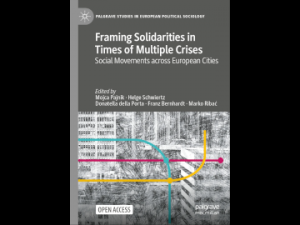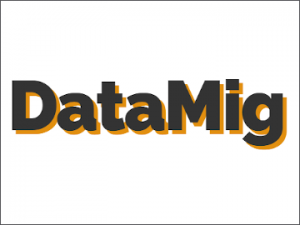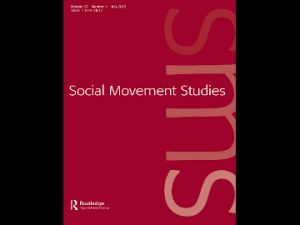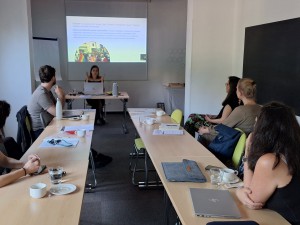Refugees legal info
22. 9. 2015 | Human Rights and Minorities
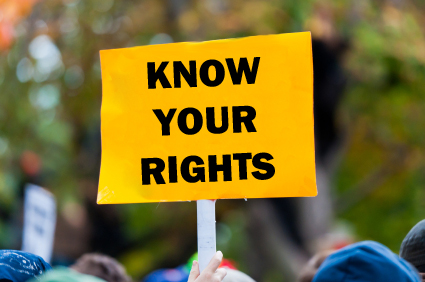
- What is the procedure in case I decide to apply for asylum in Slovenia?
Asylum is the same as international protection. International protection has two forms – refugee status under the Geneva Convention and subsidiary protection granted to those who do not meet the conditions under the Geneva Convention but would suffer serious harm (e.g. death penalty or torture or inhuman or degrading treatment) if they were returned to their country of origin.
You can express your intention to apply for asylum at the official border crossing or to any official representative of the state (usually the police). There are two steps in the process of applying for asylum:
- First you inform official person (usually the police) that you want to apply for asylum. You will be given a brochure with all information about the procedure, a list of refugee counsellors and a list of NGOs working in the field of asylum. The brochure should be in your language or the language you understand. The you will be transferred to the Asylum home in Ljubljana. Asylum home is an open facility, not a detention centre.
- After you arrive to the Asylum home you officially apply for asylum = international protection. You can expect that the officials at the Ministry of the Interior will conduct an initial interview with you (through an interpreter) and will ask you about the reasons why you ask for international protection = refugee status. Then they will conduct another interview with you, to ask you for more details about the reasons you ask for asylum. All information you give at the first and at the second interview should match as closely as possible.
You must provide any documents that you have and can prove that you have a well-founded fear to return to your own country (that you fear persecution in your country because of your race, religion, nationality, membership of a particular social group or political opinion).
If you do not have documents that can prove your well-founded fear of persecution, you will give all the information that can help prove your refugee status orally at the interview. You will also have to state that you have justifiable reasons why you cannot provide any documentary evidence that would support your statements. Also remember that all information you give to officials must always match, because the authorities will pay special attention to your story in order to decide whether they will believe you.
From the moment you applied for asylum and during the procedure, you will be accommodated in an Asylum home in Ljubljana (or you have a possibility to ask to be settled in a private accommodation as well). You will also receive an asylum seeker’s ID card. During the procedure you have the right to:
– Free accommodation and pocket money (18 EUR/month);
– Emergency health treatment;
– Education;
– In certain cases, the right to work (if the asylum procedure takes longer than 9 months);
– Freedom of movement, unless the police restrict it with a formal decision. You can sleep outside the Asylum home, but you always need their permission.
If your family is with you and they also ask for asylum, you will not be separated. But, if your family is not with you but is still in Syria, Afghanistan, Iraq … they will not be allowed to join you during the time you wait for the asylum in Slovenia. If you are granted asylum, your close family members will be allowed to join you – they will not need to travel the same way as you, you will be able to request reunion with them from Slovenia or from where the family lives. If you get international protection, you have to ask for family reunification in 3 months since you received your status.
But the procedure to get a final decision can be long: officially it lasts for 6 months but in practice it can last several years (1-3 years).
- What are the legal consequences of registration in Slovenia in case that I don’t apply for asylum?
If you do not apply for asylum, there are probably no specific legal consequences in this particular situation when the number of new arrivals is very high. The police will register you and collect information about your name and nationality in order to have control over the numbers of refugees. Slovenia will official try to return you the country you entered Slovenia from (e.g Croatia), but it is likely that this country will not accept you back.
In such case, if you cannot be returned, the police will probably (but not necessarily) issue a paper called “permission to remain” with validy of six months. This is a toleration status, not a residence permit, but this paper protects you from expulsion and permits free movement across the Republic of Slovenia.
- What are the legal consequences of fingerprinting in Slovenia? Can I resist / avoid that?
Unfortunately, you cannot refuse fingerprinting. The only reason not to take fingerprints is if they had been destroyed. However, not that currently in the situation of mass arrivals the police is not taking fingerprints.
However, even if the police takes fingerprints from you and you don’t apply for asylum in Slovenia, those fingerprints will not be entered in the EURODAC database. Only if you apply for asylum in Slovenia will the fingerprints go to the EURODAC database and thus each EU country will know where you have applied for asylum (as provided for under the Dublin Regulation). If you, for example, apply for asylum in Slovenia, and then again in Germany, Germany will return you to Slovenia.
- What does it means to have “arranged papers”?
This means that you have a valid passport and a visa to enter the Schengen area, or a residence permit issued in any EU Member State.
- How can I go on from Slovenia to Austria / Germany / Sweden / Finland / Norway?
Get some rest in a reception center, then go by taxi, car, bus, train, or walk to Austria. After you have been registered and fingerprinted, you will be taken to a reception center but your movement will not be restricted and you will be free to continue your travel.
- I lost my family members. Whom should I contact?
You have to urgently contact the Red Cross in Slovenia. They will provide you with a Tracing Request that you have to fill in and they will help you trace your family members.

